Understanding the legal side of remote work is important. Whether you’re an employee or an employer, it’s important to know the rules to ensure fair treatment. Knowing your rights can help you get the right help to resolve any issues.
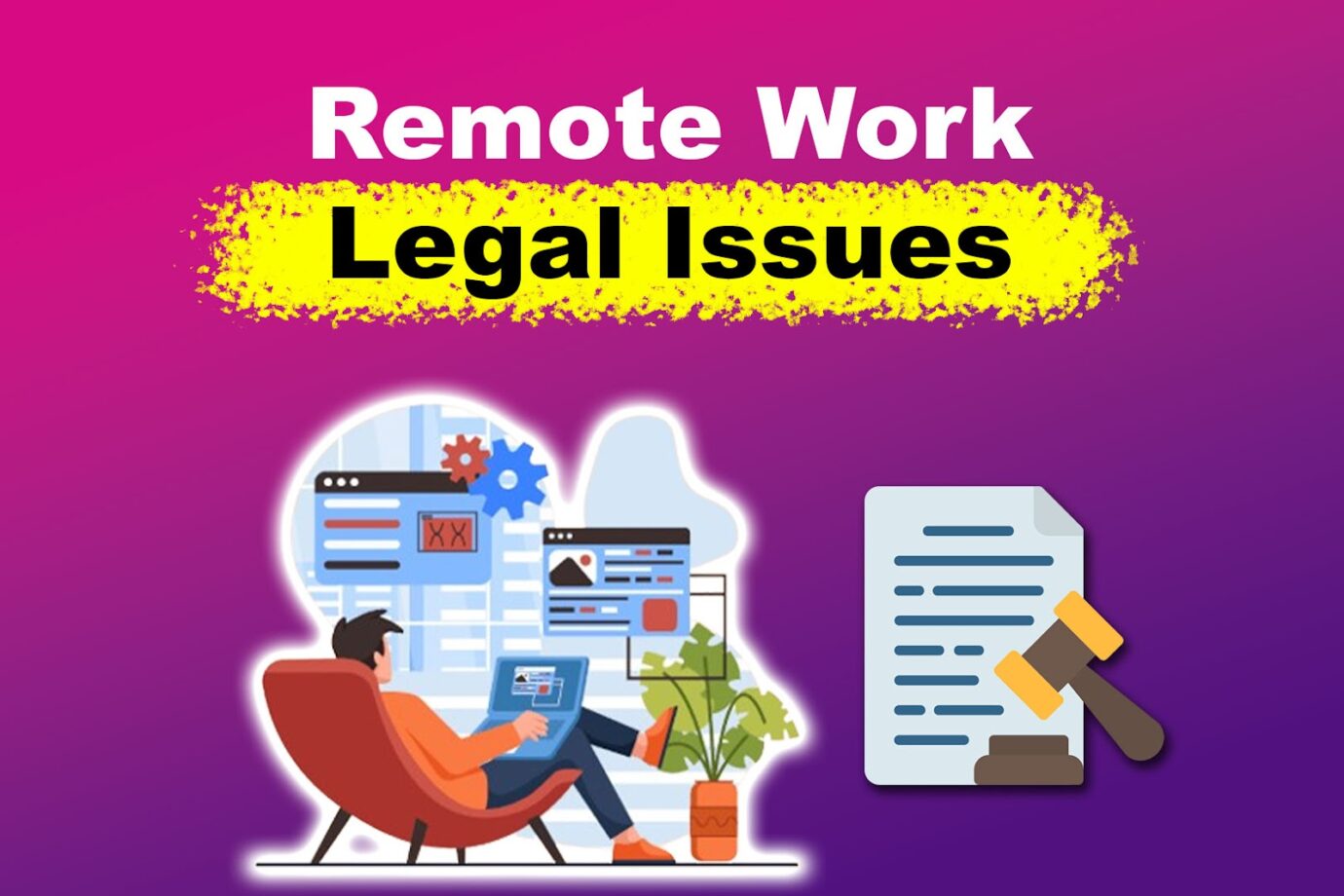
Remote work comes with legal issues that can be easily resolved by knowing what steps to take. So, take a moment to familiarize yourself with your rights and obligations—it’ll make your remote work journey smoother and more secure!
Do Employers Have a Legal Responsibility for Remote Employees?
Yes, employers have a legal responsibility for remote employees since they’re still part of the workforce. Remote work policies detail how employees should work from locations outside the office. Employers must provide clear instructions for productive and compliant remote work.
The COVID-19 pandemic has led to a surge in remote work, with more companies allowing it. Remote employees should be aware of labor laws so they know their rights. Legal assistance is available in case of any violations.
Federal laws ensure fair pay and benefits for remote employees. Employers must treat remote employees equally to in-office staff and follow wage, overtime, break, and paid time off laws.
If an out-of-state company employs you, your rights usually align with your residence’s laws. If you’re a remote worker who travels, you should understand labor regulations before accepting a position.
Remote Work Legal Issues
Here are the most common remote work legal issues:
1. Ensuring Employees Are Paid & Work the Right Number of Hours
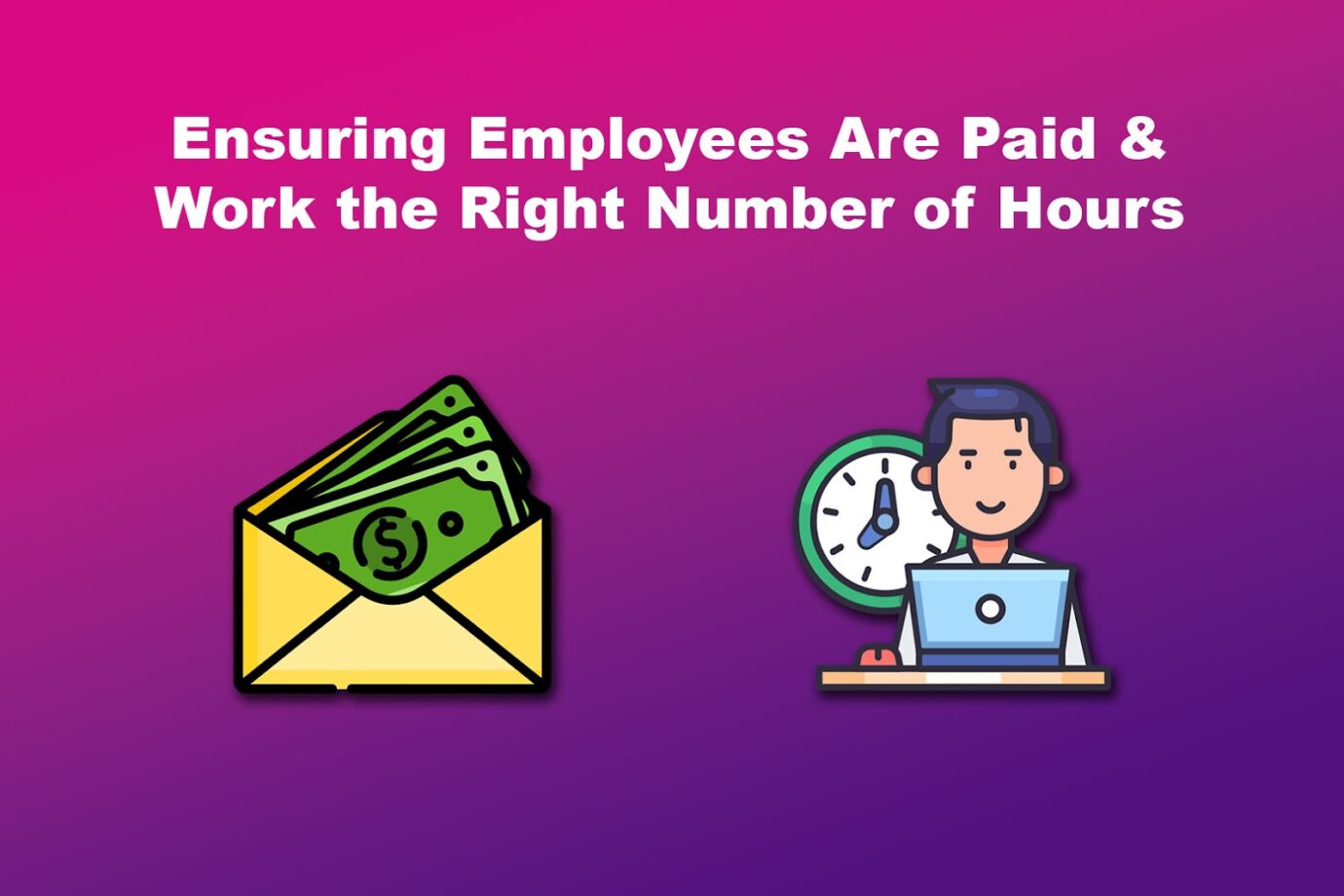
It’s important to follow federal and state laws if you have remote workers in different states. Rules may vary depending on where your workers are based, such as minimum wage rates and overtime pay.
To avoid any legal issues with remote work and ensure fair treatment of employees, pay attention to these laws.
Be aware of any changes that could affect your team, especially with new laws emerging around remote work. Be mindful of any differences in employment regulations, as laws can vary even within the US territories.
Here’s how you can ensure you’re paying remote workers properly.
2. Ensuring Remote Employees Stay Safe and Healthy
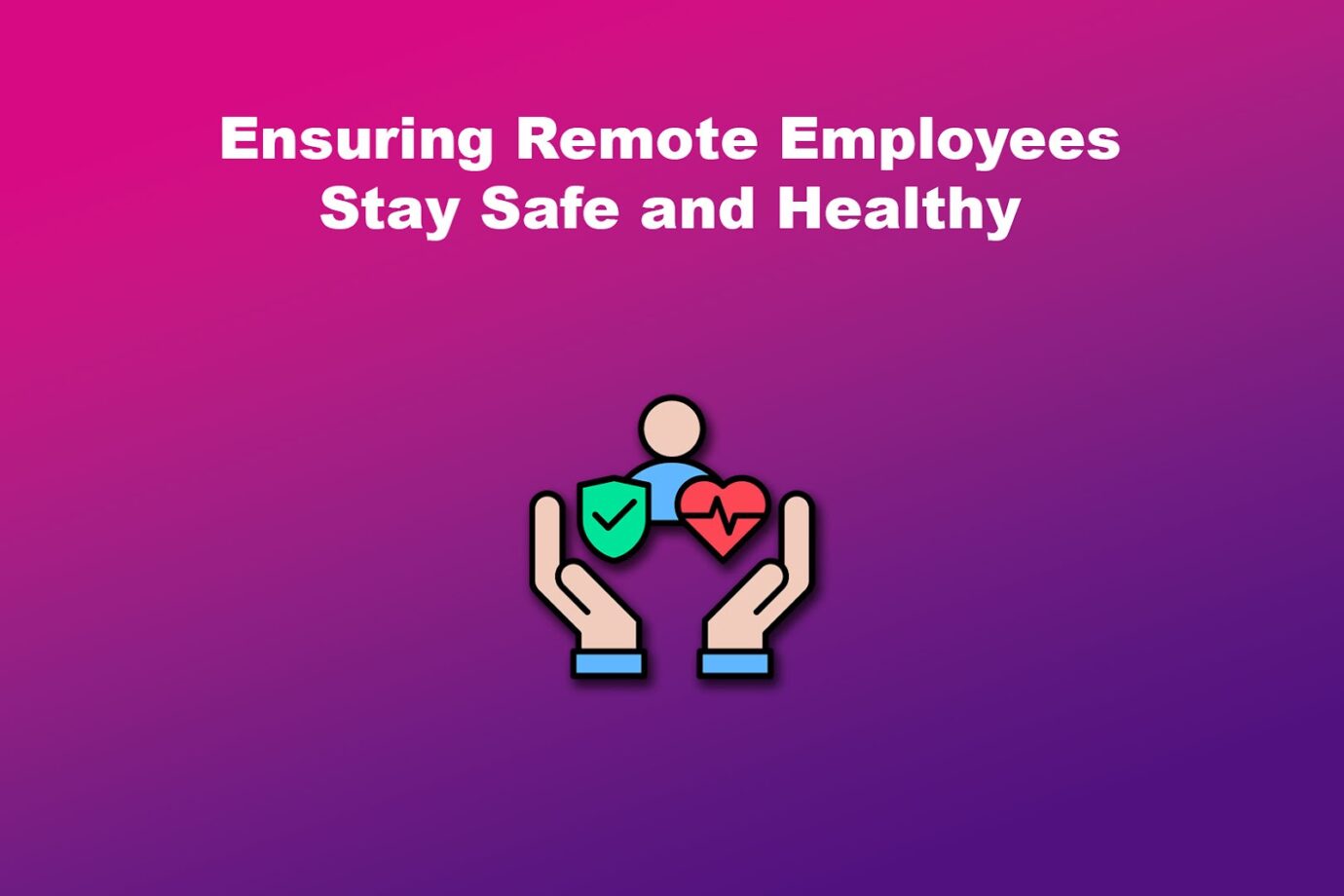
Prioritizing your well-being is important in a remote work setup. A solid company policy should cover ergonomic principles, safety guidelines, flexible hours, potential office returns, mental health support, and ways to ensure collaboration from afar. Neglecting this can lead to a decrease in employee well-being.
Consider setting aside non-work time to relax and recharge, ensuring you have ergonomic furniture, establishing secure data networks, and offering flexibility in your work hours.
To support employees comprehensively, companies can provide various wellness services covering mental, emotional, and physical health. These services may include educational programs on nutrition, meditation sessions, or access to sleep experts.
Maintaining a healthy work-life balance can be achieved by implementing systems to monitor working hours and encouraging restful breaks.
Ensuring remote employees stay safe and healthy is a legal rule because employers must keep their workers safe, whether in an office or at home. They can get into legal trouble and face penalties if they don’t. So, it’s not just about being careful; it’s the law.
This LinkedIn article contains more details on Health and Safety Training for Remote Workers.
3. Higher Risk of Data Breaches

The risk of data breaches has notably increased for businesses with the rise of remote work. Cybercriminals exploit security vulnerabilities as operations move online.
According to Forbes, recent research examined which countries and industries face the most breaches. This revealed that the healthcare sector bears the highest cost, averaging $9.23 million per incident. The financial sector also suffers significantly, with an average cost of $5.27 million per breach.
Awareness of cybersecurity risks is important as they can impact your business’s reputation, finances, and legal standing. Investing in strong cybersecurity measures, training employees, regularly updating devices, and implementing effective monitoring systems can help protect your business.
Dive into a more detailed list of cybersecurity issues in remote work in this LinkedIn article.
4. Tax Matters Get Tricky With Remote Teams
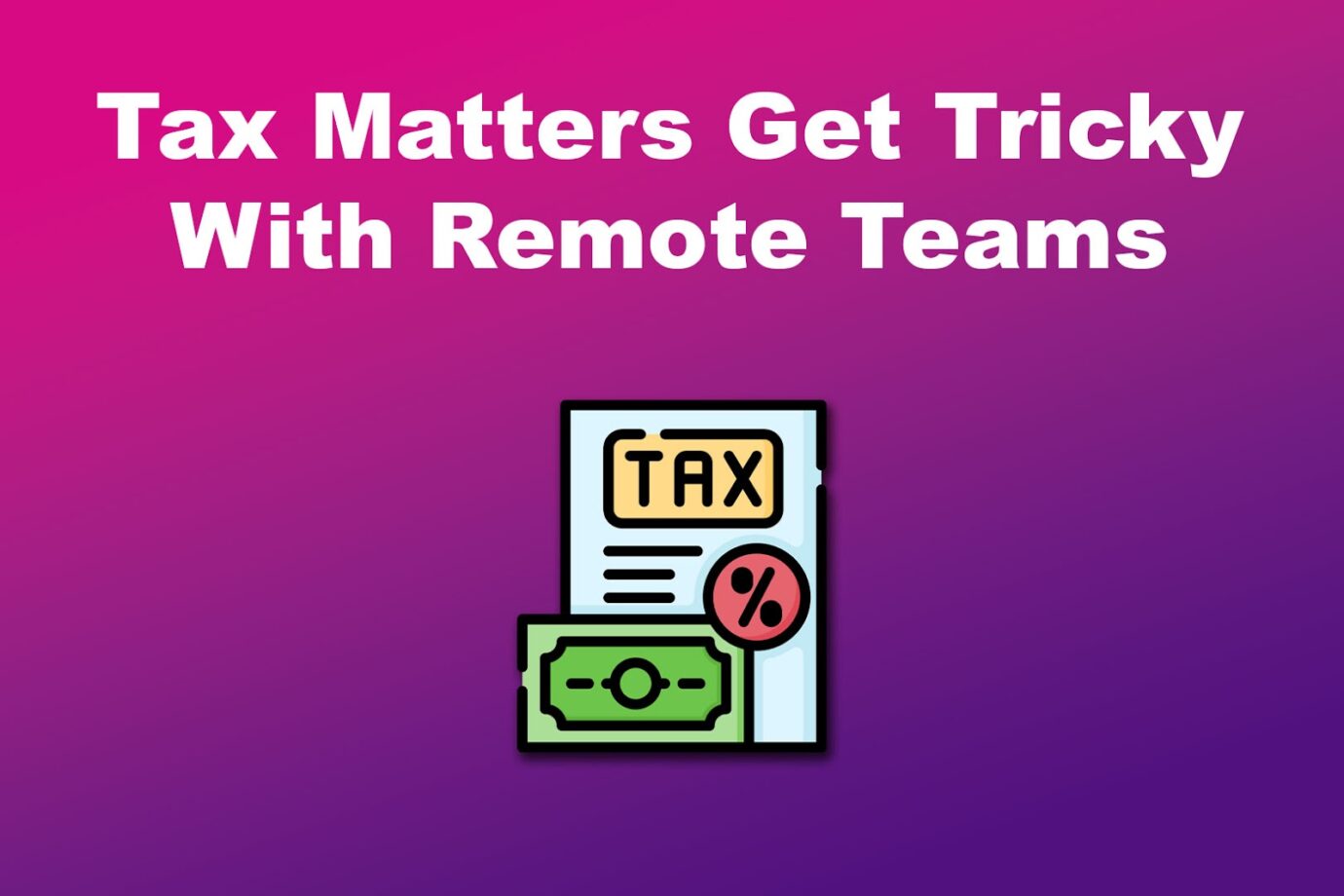
Remote work comes with tax implications, especially when working from a different state. Each state has its tax laws, making the situation complex. Some factors to consider include how many days you work in a state and your earnings there.
Working remotely may mean earning income in a different state than your employer’s location, which could result in double taxation. To avoid this, you can apply for a tax credit to offset taxes paid in one state against those owed in another.
Certain states follow unique tax rules, such as the Convenience Rule, which may lead to double taxation unless specific conditions are met. Staying informed and seeking professional advice can help you navigate these tax complexities effectively.
If you’re new to remote work, it’s important to know whether income tax is based on where you live or work.
5. Addressing Additional Legal Considerations in Contracts

Crafting clear contracts for remote workers is very important. It should outline job duties, performance expectations, and communication methods. Regularly reviewing and updating these contracts ensures they stay relevant to remote work changes.
These agreements should also cover your work hours, location, provided resources, performance expectations, communication methods, intellectual property rights, and data security procedures.
Make sure to consult legal counsel to ensure these agreements align with local employment laws.
Which State Laws Apply to Remote Workers?
The state laws that apply to remote workers depend on where you are physically located while working. The laws of the state where you reside and perform your work will apply. You and your employer must understand and comply with the specific labor laws of the state(s) where you work remotely.
For example, if you live and work in California, California’s labor laws would govern your employment. However, if you reside in Texas but work for a company based in New York, Texas state labor laws would typically apply because that’s where you’re located.
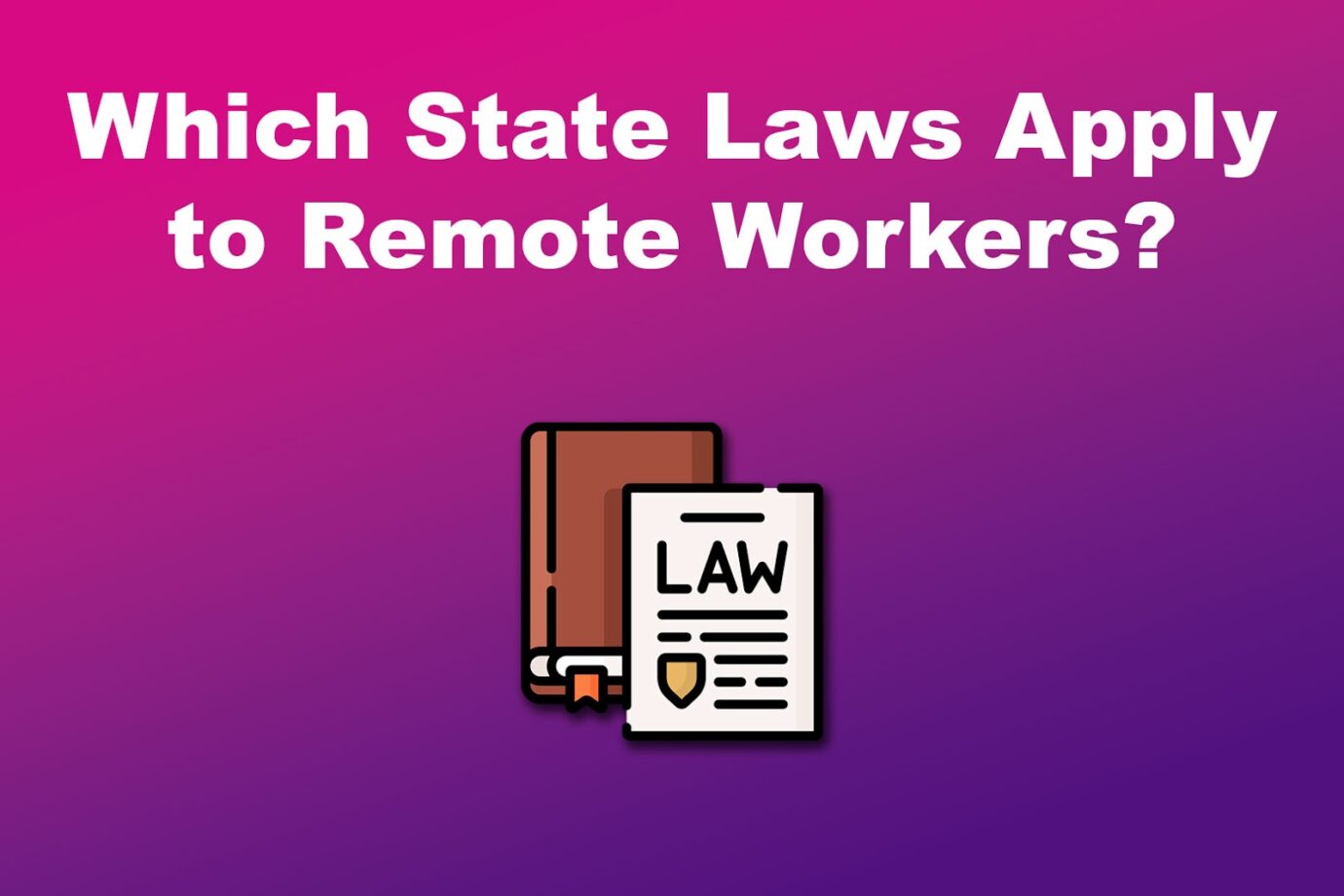
In the United States, the Fair Labor Standards Act (FLSA) state laws apply to most remote employees, except those exempt. It sets standards for employees in government and private sectors.
These are the areas covered by the FLSA:
- Minimum Wage.
The FLSA establishes the federal minimum wage, which applies uniformly across the United States. In Tennessee, where there isn’t a state-specific minimum wage, adherence to the federal law is required. - Hours Worked.
This includes time on duty or at the workplace, covering remote workers. - Breaks.
While federal law doesn’t require coffee or lunch breaks, short breaks are counted as work time. In Tennessee, most employees working six consecutive hours should get a 30-minute unpaid break. - Overtime.
Covered non-exempt workers get overtime for hours beyond 40 in a week. - Recordkeeping.
Employers, including those with remote workers, must keep basic employee time and pay records.
If you’re an employer, there are also state laws that you should be aware of.
These are the state laws that cover employers with team members working remotely:
- Paycheck & Payment Laws.
Follow state laws regarding paycheck distribution and pay frequency, and ensure paystubs include the required information. Check this article for information about remote work minimum wage. - Business Expenses.
Reimburse remote employees for work-related expenses to prevent wage reductions below minimum wage levels. - Data Privacy Laws.
Establish clear monitoring protocols, respect employee privacy, and safeguard sensitive information in compliance with state and federal laws. - Anti-Discrimination Laws & Equal Pay.
Avoid discriminatory practices in job postings and ensure remote workers receive equal pay, benefits, and opportunities. - Health & Safety.
Provide a safe working environment for remote employees, offer mental health support, and establish protocols for reporting workplace injuries. - Leave of Absence.
Familiarize yourself with federal and state leave laws, such as FMLA and PFL, and ensure compliance with eligibility and requirements. - Labor Law Postings.
Notify remote employees of labor laws and their rights electronically or through physical postings as the Department of Labor requires.
Is Remote Work Bad for Employee Health?
Whether remote work is bad for employee health will depend on individual circumstances and employer support. It is bad when it leads to social isolation, blurred work-life boundaries, and too much sitting. On the positive side, it can reduce stress from commuting and offer flexibility.
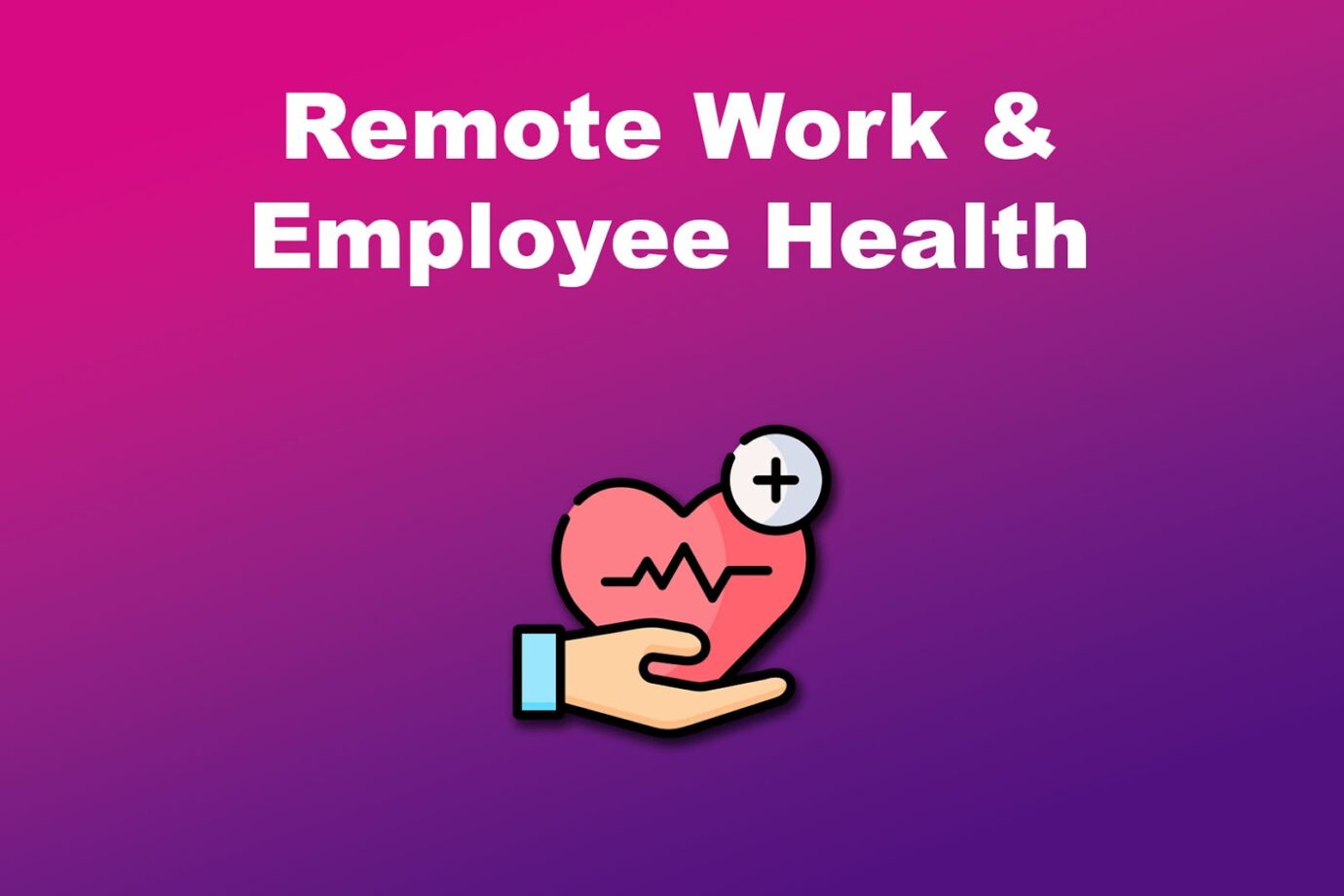
Blending home and work can make relaxing hard. When there are no clear boundaries, it’s tough to disconnect from work even after hours.
Forbes states that remote workers who struggle to disconnect may experience more stress and health issues. Research shows that 41% of remote workers feel stressed, compared to 25% of office workers.
Additionally, 42% of remote workers have trouble sleeping, while only 29% of office workers face similar challenges.
To avoid making remote work bad for employee health, you should provide access to health and safety, such as mental health support.
Related Post: Hybrid vs. Remote Work
Is Remote Work a Privilege or a Right?
Remote work is often perceived as a privilege and not a right. Based on LinkedIn, employers have the final say on remote work, considering factors like business needs, company culture, and performance. So, remote work is seen as a privilege given by employers, not a guaranteed right.
Remote work has become important due to factors like COVID-related uncertainties and saved commuting time. Since it’s become a norm in recent years, many workers are considering quitting if they have to return to the office full-time.
Some believe that remote work should be earned, not given freely, especially for less experienced employees. Being in the office allows new hires to learn from experienced coworkers, pick up essential skills, and understand what success looks like.
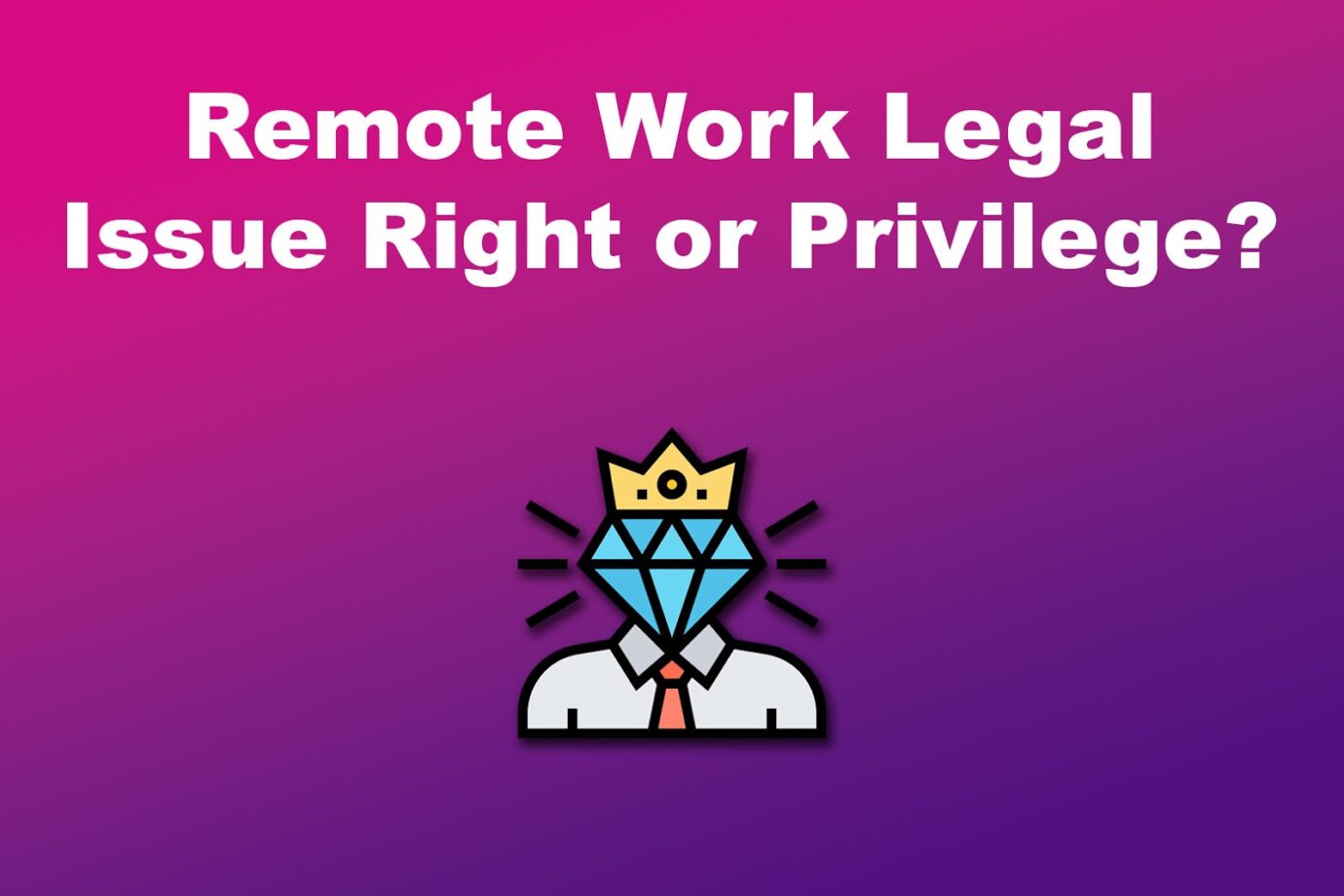
On one hand, others think that working from home shouldn’t be seen as a special treat for only a few. If someone’s job can be done online, they should be able to work remotely.
For them, it’s important to recognize that asking employees to come to the office means asking them to sacrifice time with their families and personal goals.
Remote Work Comes With Legal Issues You Can Resolve
Remote work brings legal issues due to diverse labor laws, data privacy concerns, and safety standards. Issues include compliance with employment laws across different locations, remote worker tax implications, safeguarding data, ensuring workplace safety, and clarifying intellectual property rights.
These challenges can be addressed through clear policies, training, cybersecurity measures, and legal consultations for compliance.